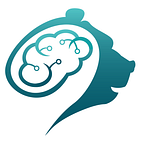Fighting Depression with Happy Helmets
Rebooting the brain using deep transcranial magnetic stimulation—Jandy Le.
Over the past couple of weeks, a new Twitter meme featuring the newly FDA-approved “depression helmet” has captured the attention of millions of teens, who poke fun at the gadget’s salon hair-dryer appearance, complete with chin straps. However, many social media users have also commended it as a powerful tool to combat depression. We sorely need such a tool: according to the World Health Organization, more than 300 million people globally suffer from depression, and 15 percent of adults experience a depressive episode at least once in their life. Whether from fear of stigma or lack of support, the majority of these people refuse to seek help or treatment; moreover, a large number who do seek treatment do not experience positive effects.
Fighting depression also strikes close to home for students, like me, at UC Berkeley. Cal, as we call it, is known for simultaneously elevating intellectualism and stress levels, the latter of which is strongly correlated with depression; in fact, half of Berkeley undergraduates report feeling depressed at least once during their academic careers. This is exacerbated by the fact that Berkeley’s mental health resources remain grievously underutilized (and students who have used them generally…
